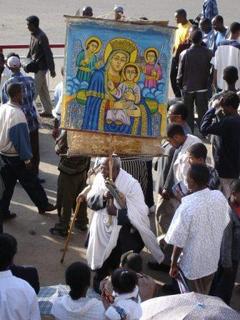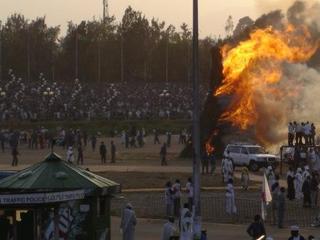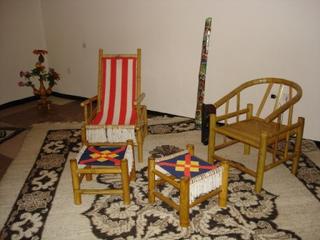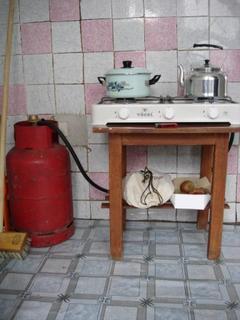“MESKEL” celebration
The meskel festival commemorates the finding of the true cross on which Jesus Christ of Nazareth was crucified in Gologotha. Church chronicle has it that the Ethiopian monarch, Zara Yacob brought the remains of the true cross in to Ethiopia in honour. The next day commemorates the inaguration of a church consecrated to the lost-and-found cross.
In the southern lands of the Oromo, Gurage, Kambata, Hadiya, Welayita, and Gamo people, the feast is the most important annual event and lasts for more than a week. This is a time when families gather and migrant workers return to their home land . every family buys new clothes, especially for the children and there is a ritual exchange of gifts.
In Gurageland , for instance ,the Meskel festivities last for eight days. Each day is given a separate name and it is distinguished by eating a special part of a sacrificial ox. The custom is supposed to renew and reassert the fertility of women and crops. Each man brings a long eucalyptus sapling to the ceremony, virgin girls from each homestead spread freshly collected meskel flowers by the shrine while chanting praises to the Gurage deities.
The following morning each household sacrifices a bull. An elder recites a prayer as he stroke the bull’s back, and the wife collects the blood with which family members anoint their foreheads. The wife also smears the doorframe and center posts of all the houses in the compound. The bull’s stomach lining is divided between the sons, the father taking the largest portion and placing it on the upper section of the main house. In the past years, the lining was fashioned in to an amulet, worn around the neck to ward off illness and evil spirits or simply as a sign of good luck.
In other parts of southern Ethiopia, Meskel is an occasion for the public recognition of life cycle events. In the Hadiya areas newly wed women parade in the market square to confirm their new status. Newly appointed officials and, in the Gamo highlands, elected leaders likewise display themselves in places where the public gathers.
In the region of Welayita, throughout the year preceding the festival, neighborhood associations contribute money towards the purchase of an ox for the celebrations. If , as was the case in the past, there is crop failure and saving associations have been disbanded, the will not forego the festivities. They will still buy an ox-on credit at exorbitant rates of interest so that the event can take place according to tradition. For as the Welayita express it , “This is our custom which must be kept alive at any cost.”
Meskel festival is also used as an opportunity for family reunion, arranging marriages and reintegration into the rural community life.






